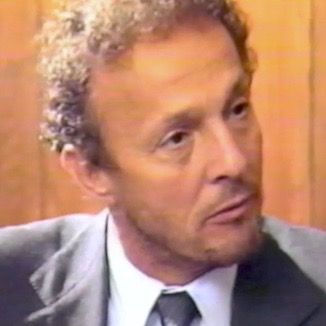 M. Donald Cardwell In October 1996, U.S. Drug Enforcement Agency officers armed with a search warrant raided the Hartford, Connecticut law office of M. Donald Cardwell, a veteran criminal defense attorney who represented a vast array of drug dealers over more than two decades. The warrant was based on claims made by Cardwell’s clients that he engaged in numerous crimes, including money laundering and helping the dealers steal drugs and money from competitors.
In August 1998, Cardwell, 65, waived indictment and agreed to plead guilty to two charges: failing to file a timely report to the Internal Revenue Service regarding an $11,000 cash payment he had received as a legal fee, and money laundering for helping a client purchase a home that the prosecution said he knew was being purchased with drug profits.
In May 1999, in an attempt to obtain a long prison term for Cardwell, federal prosecutors filed the 56-page affidavit that was used to obtain the search warrant for Cardwell’s office in 1996. The affidavit was created by a DEA agent and alleged that Cardwell had laundered cash, protected dealers against informers and helped his clients steal cash and cocaine from rival drug dealers.
Although he had pled guilty, Cardwell decided to fight back against the affidavit.
A series of hearings were held by U.S. District Judge Alvin Thompson at which the convicted drug dealers who had provided the information in the affidavit testified. Their testimony was contradictory and conflicting, prompting prosecutors in September 1999 to propose withdrawing some of the more dramatic and damning claims.
On January 4, 2000, Cardwell stood before Judge Thompson at his sentencing hearing and apologized. In particular, he said he was embarrassed by a secretly recorded conversation in which he advised a woman to purchase a home using money that belonged to her boyfriend, a drug dealer whom Cardwell represented. Cardwell said he had turned a “willfully blind eye” to the fact that the money came from illegal drug sales.
He told Thompson that he was trying to help her safeguard funds he believed she legitimately held, but conceded that the tape sounded incriminating.
Despite Cardwell’s statements, Thompson questioned whether his actions actually met the legal standard for money-laundering. He ordered court reconvened the following day.
On January 5, Thompson reluctantly accepted Cardwell’s guilty plea said, “I hope what is going on isn’t a situation of…a defendant pleading to a count because he doesn’t have the resources to fight,” the judge said. “That would bother me.”
Although he accepted Cardwell’s plea, Thompson said he wanted to review the tape recording before imposing a sentence.
On January 9, Thompson changed his mind and vacated Cardwell’s plea to the money laundering charge. Thompson ruled that the evidence against Cardwell was untrustworthy and based on perjured testimony. He said the prosecution had been duped into investigating Cardwell by drug dealers seeking leniency.
Thompson said the drug dealers “attempted to make mockery of our criminal justice system. They caused the government to invest enormous resources into an investigation that was unnecessary.”
Thompson ruled that there was no proof of specific intent to launder money and that Cardwell had no intent to willfully fail to report the $11,000 in legal fees.
On March 17, 2000, prosecutors dismissed the charges. Cardwell died in August 2002.
– Maurice Possley
|